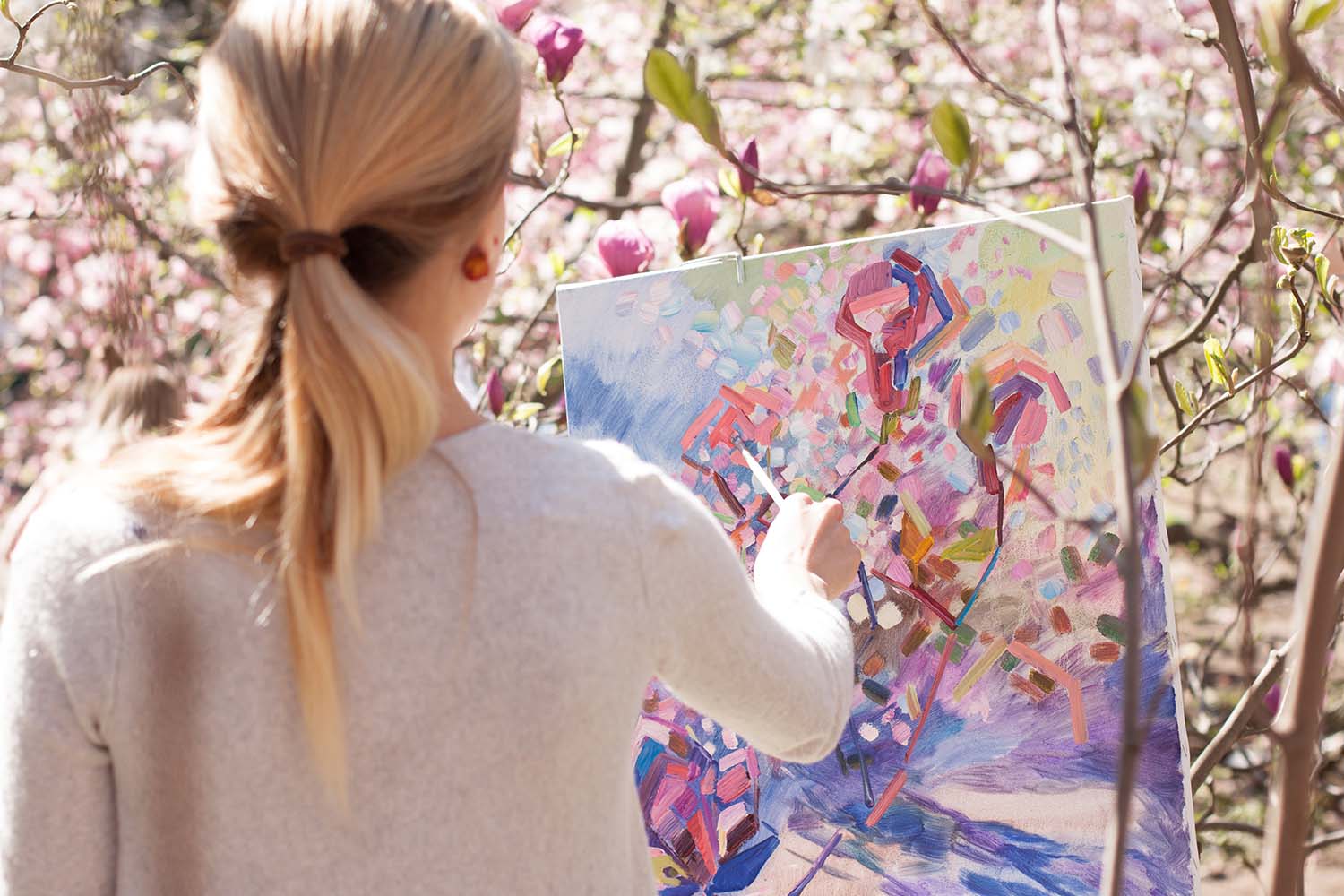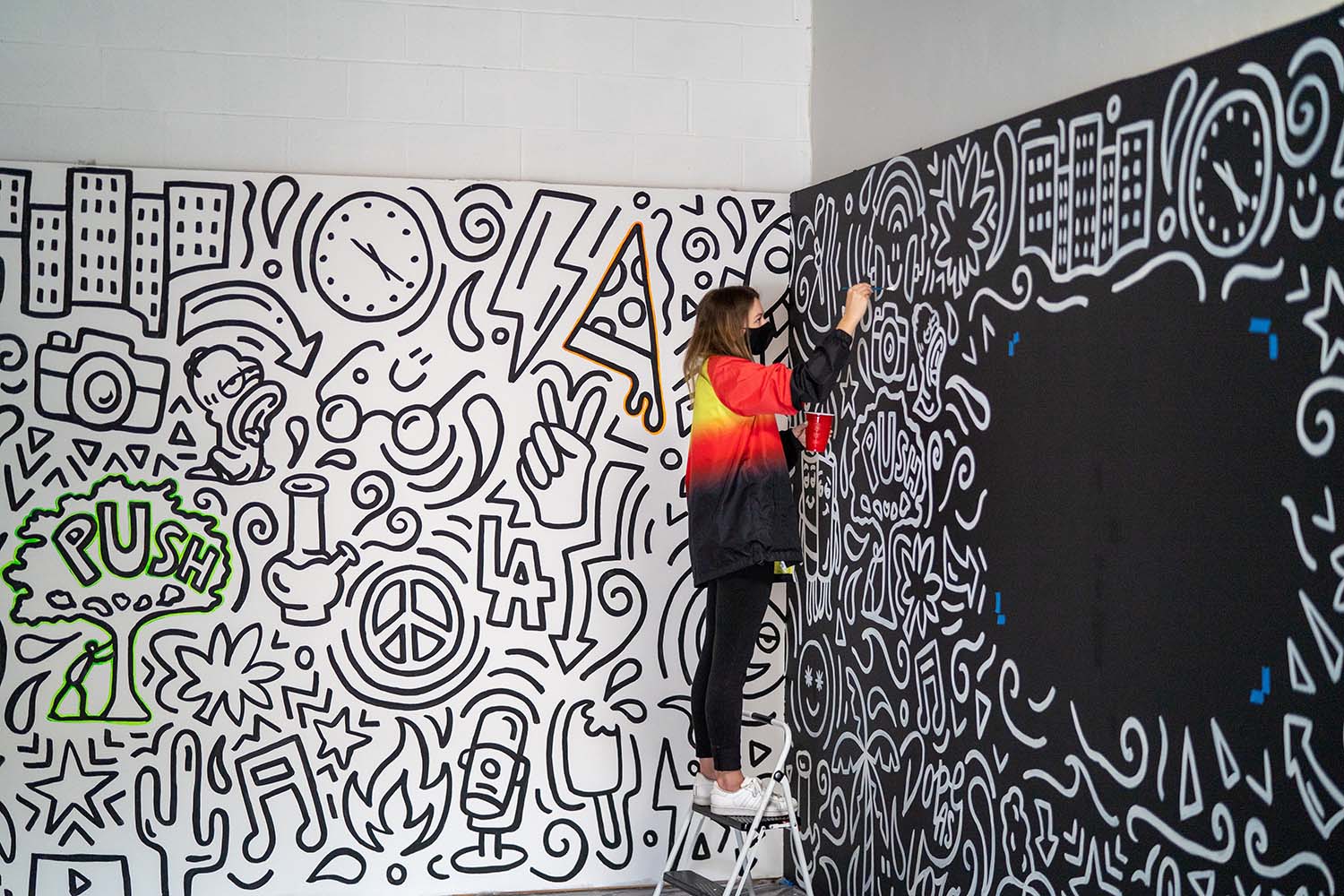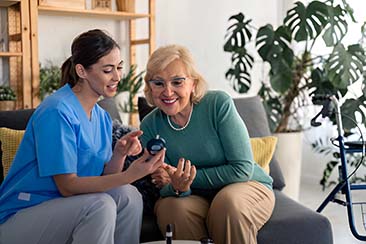Art is a fantastic hobby that can have many positive effects on your mental health. There are a handful of benefits of including art of some sort into your life. Be that drawing, painting, playing music, and many more creative disciplines, the links between art and mental health are many.
Are you looking for a boost to your mental wellbeing? This article will share some specific reasons why art is good for your mind.
Creativity
Out of all of the mental health benefits of art, creative expression is a given. However, sometimes creativity is something that you take for granted when looking for a fun activity.
Being allowed to be creative means that you have an outlet to use your imagination. Also to express your feelings and emotions. This freedom alone lays the foundation for other benefits that art provides. Let’s look at those benefits throughout this article.

Photo, Goashape.
Stress Relief
One of the main purposes of having a creative outlet is to express yourself as a way to cope with distress. Especially when it comes from general stress or other mental health issues like depression and anxiety disorders.
Although art can be beneficial on its own, there is also art therapy where you work with a professional to find relief by interpreting the art you create and finding solutions for you.
It’s a formalised evidence-based psychotherapy technique. Much like cognitive behavioural therapy, interpersonal therapy, and biofeedback therapy. You can learn more about those here:https://www.betterhelp.com/advice/therapy/what-is-biofeedback-therapy-and-how-does-it-work/
The main difference between it and these other approaches to therapy is that it uses art as a tool for understanding your feelings and emotions. Therefore, professionals train in both art and psychotherapy to help you do this.

Photo, Tetiana Shyshinka.
Cognitive Abilities
Being able to be creative through art stimulates parts of the brain that are responsible for cognition. Particularly when it comes to learning, problem-solving, focus, and memory. Even art has obstacles and challenges, and when you’re given the opportunity to think, you look for ways of approaching them.
You can develop problem-solving over time, and you will be able to find creative solutions for ordinary problems in your day-to-day life through what you’ve learned.
A Sense of Purpose and Achievement
Art can boost a person’s self-esteem. That’s because it gives them a sense of accomplishment that they may not be able to achieve elsewhere. Namely, if they don’t have interests in other activities like sports.
While validation might not be important or a motivator for a lot of people, these feelings can be amplified if others appreciate the art you create and have good things to say about it.
Social Connection
Piggy-backing on the notion of others showing appreciation for your work, the social aspects of art can become much broader than that. Art has the ability to connect people who have the same interests. For example, people might enjoy the same kind of art, the same era or genre of it, or respect the same artists. It gets people talking to each other, especially those who share the same passions.

Photo, Marty O’Neill.
It’s Just Fun
Last but not least, art is just a fun and wholesome hobby to do that can make time fly. It can be easy to get absorbed into what you’re creating, and this can help relieve boredom and the negative effects of it.
Having fun and enjoying yourself is good for your mental health. Simply due to the fact it can uplift your mood. Also that it can give you a sense of satisfaction that you did something positive and productive with your day
Conclusion
For a lot of people, art has become a staple in their lives. It then becomes something that they look forward to doing and will actively make time for it. Hopefully, this article has shown you how art can be valuable to your mental health and perhaps, it can also become something that gives you fulfilment and you can appreciate for the rest of your life.
Marie Miguel has been a writing and research expert for nearly a decade, covering a variety of health- related topics. Currently, she is contributing to the expansion and growth of a free online mental health resource with BetterHelp.com. With an interest and dedication to addressing stigmas associated with mental health, she continues to specifically target subjects related to anxiety and depression.








